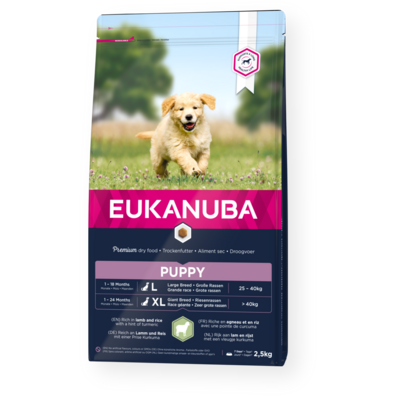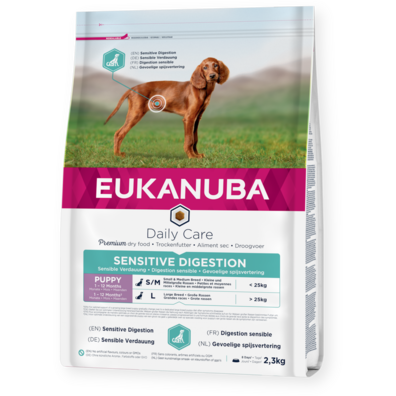Your puppy's first visit to the vet
A visit to the vet shouldn't be stressful for you or your pet. Here’s what you should expect at your puppy’s first visits, and what you can do to make the experience easier.

Getting to know your vet
Some puppies will have gone to the vet with their breeder for their first vaccination, but even so it will be good you make the first appointment a few days after you collect your puppy to ensure you start your dog’s relationship with your vet as positively as possible.
After this first visit, your dog should be seeing the vet at least once a year, so ensuring your puppy has a positive relationship with the vet and gets used to being examined will save you a lot of stress . It’s also a good idea to get them used to being examined by you at home. Check their ears and eyes, and regularly brush their teeth.
Your vet will perform a full clinical examination, which will consist of an oral (mouth and teeth), ears and eyes check up to make sure your puppy is in good health. Take some healthy treats with you to make the overall experience better for your dog, and praise them calmly during the exam and afterwards. Avoid paying them too much attention if they react or make a fuss while at the appointment, only reward them when they have been good.
Top tips for a smooth vet experience
- Try and get an appointment first thing in the morning, as this means fewer people and pets at the clinic. Also if your puppy has not had any vaccinations before it’s better to avoid contact with other animals as they are more susceptible to infections.
- Make sure you bring along any vaccination cards or paperwork you may have from the breeders or the puppy’s previous home, so your vet can plan all the necessary treatments for the puppy and advise you on how to make sure your pet is ready for the outside world.
Your puppy's vaccinations
Usually vaccinations start at around 6-8 weeks, with booster injections at around 12 and 16 weeks. It’s very important to stick to this schedule to make sure your puppy is fully protected against infectious diseases. The common diseases your puppy will be covered against are hepatitis, parvovirus, distemper, leptospirosis, rabies and lyme disease. If you travel abroad with your puppy, bring your vaccination booklet with you and make sure that it’s fully compliant with the regulations of the country you’re visiting.
Other options to think about
Your vet is likely to recommend that you get your puppy microchipped, although this may have already been done by your breeder. This is done via a small procedure whereby a chip containing your information is inserted into your puppy's neck, so that any vet can identify them if they become lost or injured.
You'll also have to think about whether you'd like to have your pet neutered or spayed. There are various pros and cons to neutering, for example, neutered dogs may behave better and are less likely to scent mark, however it can make them more prone to weight gain. Your vet can discuss all of your options with you.
Remember to ask your vet any questions you may have. It’s important that you feel like you’re well prepared to take the best care of your puppy over the coming weeks and months.










